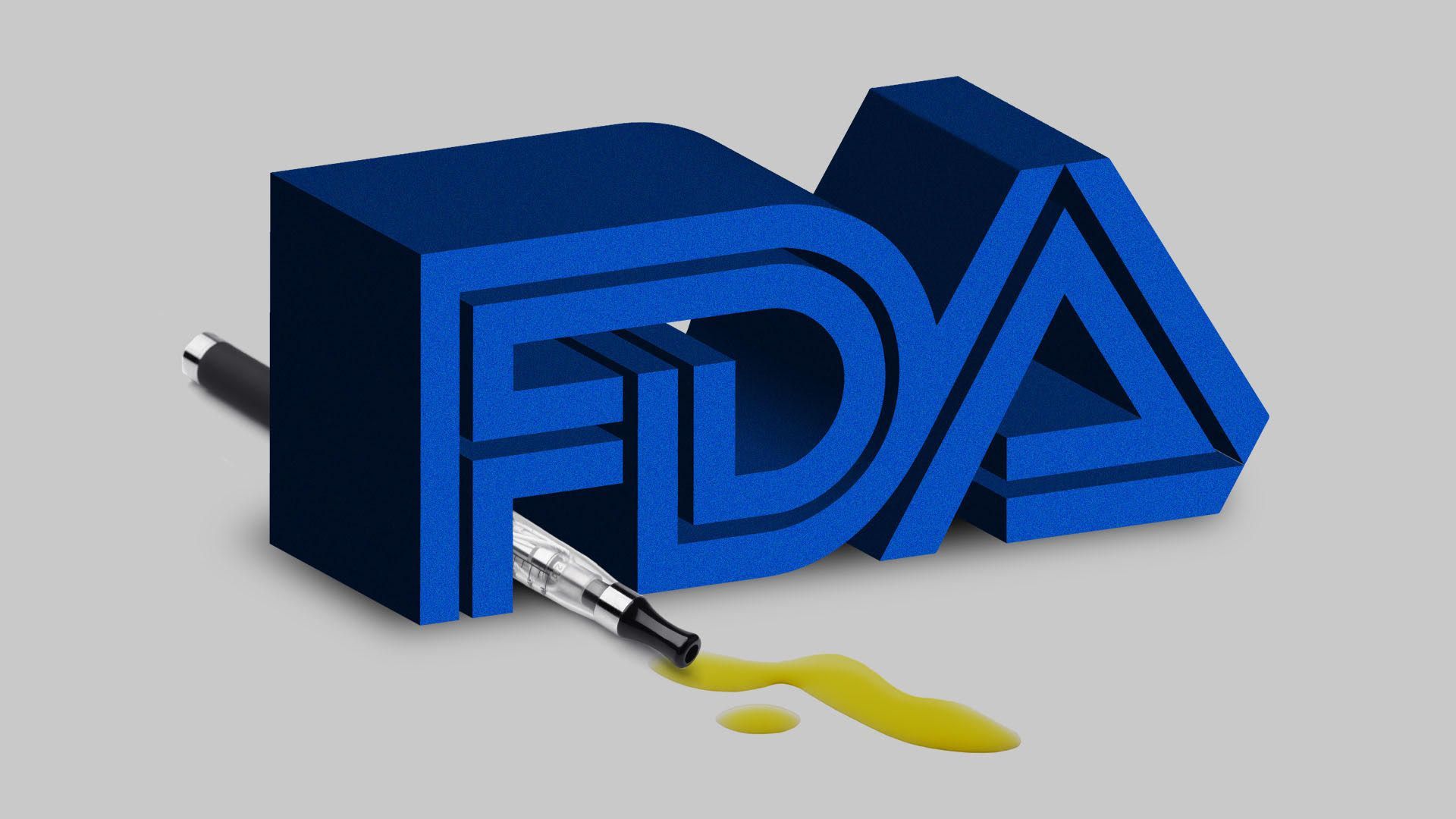| |
| |
| |
| Presented By Kaiser Permanente |
| |
| Axios Vitals |
| By Adriel Bettelheim · Jun 01, 2023 |
| Welcome to June, Vitals gang. Today's newsletter is 862 words or a 3½-minute read. |
| |
| |
| 1 big thing: United backs off pre-clearance plan for colonoscopies |
 |
|
| Illustration: Gabriella Turrisi/Axios |
| |
| UnitedHealth is backing off a contentious plan to require prior authorizations for colonoscopies and other endoscopic procedures. But the debate over insurer sign-offs that it stoked will likely linger, Axios' Arielle Dreher writes. Why it matters: While prior authorizations are supposed to ensure that health services are medically necessary, critics say they can create barriers to care and drown the health system in red tape. Driving the news: UnitedHealth, the biggest commercial health insurer in the U.S., planned today to start requiring prior authorizations for most endoscopic procedures, including some to treat cancer and gastrointestinal diseases. - But facing pushback from physician groups, the insurer late Wednesday announced it would instead put in place an alternative advance notification process that requires clinicians to collect and submit patient data before performing a procedure.
- Providers have to participate if they want to qualify for a gold card program set to roll out next year that will further streamline the process for getting coverage approval for certain non-emergency procedures.
What they're saying: Three provider groups — the American Society for Gastrointestinal Endoscopy, the American College of Gastroenterology and the American Gastroenterological Association — rejected the advance notification process during a meeting with UnitedHealth last week, saying it would require essentially the same amount of documentation as prior authorization. A move toward prior approvals for colonoscopies stoked concern in some quarters at a time when people are being diagnosed at younger ages and with more advanced cases of colorectal cancer. Providers worry that delays getting pre-clearance could make patients skip or miss screenings. - Dozens of major medical groups drafted a letter to UnitedHealth CEO Andrew Witty asking him to reconsider prior authorization and noting there was no evidence that procedures provided were overused.
|
    |
| |
| |
| 2. FDA cracks down on sales of Puff and Hyde e-cigs |
 |
|
| Illustration: Rebecca Zisser/Axios |
| |
| The FDA on Wednesday issued 30 warning letters to retailers and a distributor for illegally selling unauthorized tobacco products, including some widely used Puff and Hyde brand disposable e-cigarettes. Why it matters: The warnings were part of a nationwide crackdown on e-cigarettes popular with youths, including the Puff Bar — the top brand among kids who reported using e-cigarettes in a 2022 national survey. Go deeper: The FDA has authorized 23 tobacco-flavored e-cigarette products and devices for legal sale in the U.S. - Products without marketing authorization orders are prohibited under the Food, Drug, and Cosmetic Act. The FDA generally sends warning letters for first-time violations, and can use injunctions, seizure and fines if corrective action isn't taken.
What they're saying: "Retailers and distributors play a key role in keeping unauthorized tobacco products off the shelves, and if they fail to do so, we're committed to taking appropriate action," said Brian King, director of the FDA's Center for Tobacco Products. Background: The FDA reorganized its Center for Tobacco Products in February after an external review found it struggled to function as a regulator and was operating primarily in reactive mode. |
    |
| |
| |
| 3. The menopause gap at work |
 |
|
| Illustration: Sarah Grillo/Axios |
| |
| There's a big disconnect between employers and women over a somewhat taboo topic: menopause, Axios' Emily Peck writes. Driving the news: 76% of human resources benefits managers said they discuss menopause-related issues with employees, but just 3% of women employees would say they've talked about these issues with HR, according to a pair of surveys released by Bank of America today. Why it matters: There's increasing awareness that menopause and its symptoms can push women out of the workforce just as they're at the top of their fields. - Over the past year, the issue has gained attention from employers who are rethinking the health benefits they offer women, as Axios' Tina Reed reported.
- It doesn't look like employees are getting the message.
Zoom in: BofA, in partnership with the nonprofit National Menopause Foundation, conducted two surveys in February and March. - One survey targeted 500 HR benefit managers at companies with at least 1,000 employees; the second polled 2,000 women, ages 40–65, employed full-time at a company with 1,000 or more employees.
What they found: 71% of HR benefit managers feel positive about their company's menopause culture compared to 32% of employees. - Employers say they do offer some menopause-specific benefits like hormone replacement therapy, but women are often unaware they exist.
Read the rest. |
    |
| |
| |
| A message from Kaiser Permanente |
| See all that health care can be |
| |
 |
| |
| Some health care experiences can be fragmented and impersonal, with the responsibility on the patient to make it work. But at Kaiser Permanente, everything works together to provide equitable, high-quality, affordable care and coverage that support the unique needs of each member. See how. |
| |
| |
| 4. Reports go against those with opioid use disorder |
 |
|
| Illustration: Aïda Amer/Axios |
| |
| Some state policies that require reporting pregnant patients who use illicit drugs to child protective services also use treatment for opioid use disorder as a proxy for alleged child abuse and neglect, Axios' Sabrina Moreno writes. Driving the news: That's left pregnant patients facing higher overdose risk due to stress and opting to discontinue the addiction drug buprenorphine, according to a new report in Maternal and Child Health Journal from Massachusetts General Hospital. - It also noted that most of the reporting policies exclude fathers who are in treatment while making mothers subject to immediate investigation.
- Researchers wrote that mandated reporting for prenatal use of opioid use disorder treatment, which is considered safe for use during pregnancy by the CDC, "tangibly harms parents and children" more than it prevents potential future harm to kids.
Go deeper. |
    |
| |
| |
| 5. Catch up quick |
| 💉 FDA approves a second RSV vaccine. (Axios) 🏛 The Oklahoma Supreme Court rules new abortion bans unconstitutional. (New York Times) 👀 How a medical recoding may limit cancer patients' options for breast reconstruction. (KFF Health News) |
    |
| |
| |
| A message from Kaiser Permanente |
| See all that health care can be |
| |
 |
| |
| Some health care experiences can be fragmented and impersonal, with the responsibility on the patient to make it work. But at Kaiser Permanente, everything works together to provide equitable, high-quality, affordable care and coverage that support the unique needs of each member. See how. |
| |
| Thanks for reading Axios Vitals, and to senior copy editor Bryan McBournie. Please ask your friends and colleagues to sign up. |
 | | Dive deeper into the future of health care | | |
No comments